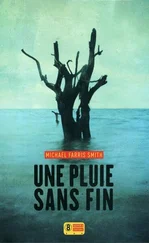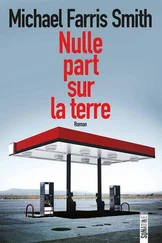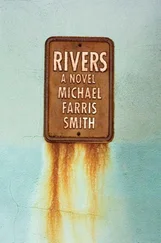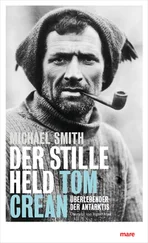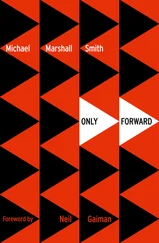But now he saw that this particular shop was not like that - it had attractive things: an imposing smoked glass table, for example, that would do very well in his sitting room, he thought, and a small bookcase that would look good in the spare bedroom, once he got Eddie out of it. And there was a rug, too, which he rather liked, and which Freddie de la Hay now sat upon in a gesture of canine approbation.
‘Are you looking for something in particular?’
William turned round to see that a tall, extremely attractive young woman had appeared at his side, smiling as she spoke - and she spoke to him. Where was she from? he wondered. She was Italian, he decided. Milanese, perhaps; Milan was the design capital of the world, was it not?
Taken by surprise, William needed a moment to gather his thoughts. ‘Belgian Shoes?’ he asked eventually. ‘I saw the sign in the window, and . . .’
‘Of course,’ said the assistant. ‘Belgian Shoes. The men’s shoes are over here on the table.’ She led him to a table on the other side of the room.
‘May I leave my dog on the rug?’ William asked. ‘He’s very well behaved. A very good dog.’
It occurred to him that he did not know this. Was Freddie de la Hay well behaved in all circumstances? William realised that he simply did not know whether Freddie de la Hay could really be described as a good dog. That was not an appellation that should be conferred automatically; good dogs should earn it, thought William, in the same way as soldiers earned their medals. Soldiers did not get the MC for nothing - or at least British soldiers did not. Some countries gave their soldiers a medal the moment they received the slightest injury: William had heard of a medal (a foreign one) awarded to any soldier who cut himself while shaving, but he could not believe that. It simply could not be true. Surely one had to do far more than that to get a particular medal? One had to get one’s finger jammed in the door of a tank at the very least .
‘Your dog may certainly stay on the rug,’ said the assistant. ‘He seems to be a very fine dog.’
Standing in front of the shoe table, William looked at the selection. He had had no idea what Belgian Shoes would look like; now he gazed upon a selection of about twenty exemplars of the footwear, ranging from black patent-leather dancing pumps to brown ostrich-skin casual loafers.
‘Very nice,’ he said, picking up one of the shoes. It was feather-light.
‘They are very comfortable,’ said the assistant, ‘because they are so light. The sole has horsehair in it.’
She turned one of the shoes over and showed it to William. The underside of the sole was thin leather - not a conventional sole, but rather the smooth leather that one might find on an expensive pair of slippers.
‘They’re not really outside shoes,’ said William. ‘These soles wouldn’t last long outside.’
He wondered whether Belgians spent an inordinate amount of time indoors; in restaurants, perhaps, enjoying their distinguished cuisine.
‘They are designed for wear inside the house,’ said the assistant. ‘However, you can have a thin rubber sole applied, which will protect the shoe if you take it outside. But they are not for the rain.’
William picked up the ostrich-skin loafers and looked at the inner sole. Like the rest of the shoe it was of soft, light leather, and had imprinted on it a picture of a cobbler’s sewing needle and thread and the words ‘Belgian Shoes’.
They then discussed his size and the assistant went off to get an appropriate pair of the ostrich-skin loafers. William realised that he had not asked the price, but it was too late now to do so. He had to have a pair of Belgian Shoes. He simply had to.
‘They look very good on you,’ said the assistant when William put on the shoes and stood up to admire them. ‘You must have them.’
William nodded. There are some shoes that say to us: ‘Buy us and we shall change your life.’ That is what these shoes now said to him - quite unequivocally. And William knew that the claim was true: his life would change once he had a pair of shoes like this. He knew it.
Of course, it all seemed so unlikely. Belgian Shoes! Nobody would associate elegant footwear with the Belgians of all people; the Italians, yes - they were destined to design and make elegant, life-changing shoes. But the Belgians? What were they best at making? Regulations?
He turned to the assistant. ‘Why are they called Belgian Shoes?’ he asked.
She smiled. ‘They are made in Belgium,’ she said. ‘And the Belgians are a great people for comfort. Belgians do not like to be uncomfortable.’
William thought about this. Did anybody wish to be uncomfortable? The British certainly lived in conditions of great discomfort, with their cold, draughty homes and their admiration for a culture of cold showers. But did they actually like to be uncomfortable, or did they accept discomfort as a constant factor in British life, like bad weather and run-down trains?
‘So the Belgians are hedonists, are they?’ he remarked.
He had not thought he would get an answer to this, and he did not. But what he did get was a sudden chilling of the atmosphere.
‘You’re not . . . you’re not Belgian?’ William stuttered.
The assistant shook her head. ‘I am Italian,’ she said. ‘But I have nothing but admiration for the Belgians.’
She placed the Belgian Shoes in a dark green shoe bag and passed it over to William.
‘These shoes will make a difference,’ she said. ‘They will bring you a great deal of happiness. It is very clear.’
William paid - one hundred and seventy pounds - and then, collecting Freddie, he left. As he made his way back to the flat, he considered how his life had changed dramatically within a couple of days. He had acquired a dog. He had begun to resist his son. And he had acquired a pair of potentially life-changing Belgian Shoes. And . . . He was about to add: ‘And I’ve embarked upon my mid-life crisis,’ but he stopped himself. It was not a crisis he had initiated, it was a rebellion - a full-blooded post-teenage rebellion. I am rebelling, he thought. I have never rebelled in my life - not once. Not as a teenager, when I was entirely compliant; nor as a young adult. Never. Now, at long last, I have started to rebel.
It was an intensely satisfying feeling.
42. The Morning Sun was in Her Eyes
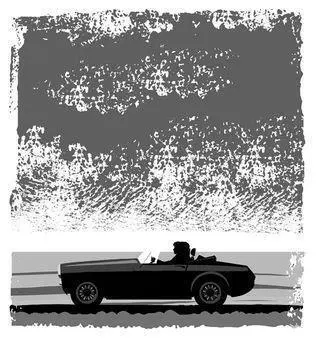
When asked whether she was driving back to London, Barbara Ragg hesitated before replying. She looked at the young man standing beside her: what business of his was her destination? She appreciated his materialising from nowhere and helping to pick up the shattered glass from her wing mirror, but she did not think that it gave him the right to ask where she was going. She looked at him coolly - or in a manner she hoped would give the impression of coolness - but even as she stared at him she knew that the effect of her gaze was probably quite different from what she wanted. She felt flushed, rather than composed; suddenly unsettled, rather than determined. Only a few minutes ago she had walked out of the Mermaid Inn filled with resolve and firmness - a free agent once again after deciding that no longer would she endure the humiliation of being a mere adjunct to Oedipus Snark’s life. And here, within the space of a few minutes, she found that a pair of green male eyes fixed on hers had reduced her to a state of vulnerability and indecision. How she answered this simple question, she vaguely sensed, would in some way determine the course of her life.
That, of course, was absurd. The pattern of one’s life could not be changed by a chance encounter in the parking place of the Mermaid Inn. And yet, it could - lives, even our own, could be changed by such apparently insignificant events, and Barbara knew it. An apparently throwaway remark by one person could send another in a direction that would have profound consequences for what they did. ‘Why don’t you write poetry?’ one young schoolboy had said to another young schoolboy - the sort of thing that boys used to say to one another in more literate days, and the sort of remark that might have no effect on the world unless . . . unless the boy to whom the suggestion was made was none other than the young Wystan Auden. Perhaps a similar boy had said to another small boy called Horatio, ‘Why don’t you go to sea?’, and the juvenile Nelson had replied, ‘Yes, why not?’
Читать дальше


